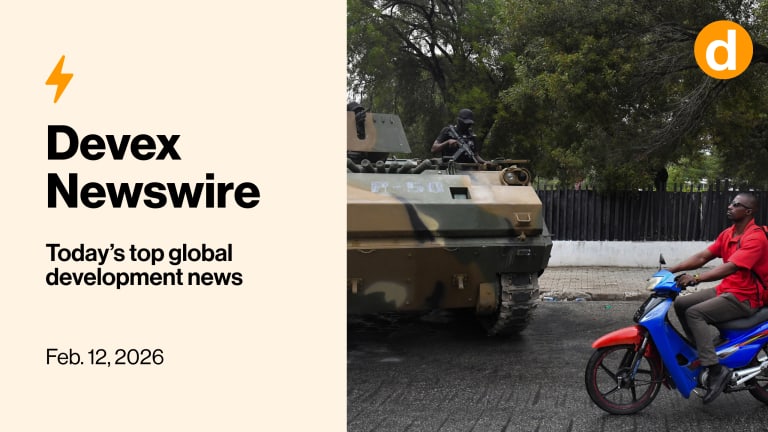EDITOR’S NOTE: The Jan. 12 earthquake is a reminder of aid futility in Haiti as well as an opportunity for the international community to consolidate stability in the country, writes Kara C. McDonald, international affairs fellow in residence at the Council on Foreign Relations. A few excerpts:
The January 12 earthquake that devastated Haiti’s capital, Port-au-Prince, is the first test of the Obama administration’s ability to mount a full-scale international disaster response, and it is no ordinary test. Haiti is the poorest nation in the hemisphere, with abysmal infrastructure, struggling to stabilize even before it was struck by four hurricanes eighteen months ago. Intractable political instability surges at regular intervals into wide-scale violence, and the UN force there, MINUSTAH, had just begun to see progress in stemming corruption and lawlessness.
The United Nations and the United States have focused on accounting for staff, attending to the critically wounded, and organizing wide-scale evacuation. The UN special representative there, Hedi Annabi, is still missing, an eerie reminder of the death of UN envoy Sergio Vieira de Mello in Iraq (killed in a terror bombing in Baghdad in 2003) and the heightened risks of operating as civilians in unstable environments. The devastation to existing response structures will further complicate the already treacherous mission. Many of those who best know the country, its contours and geography, both literal and political, are undoubtedly among the dead. Those who survived have experienced trauma and will also need relief and care. Yet even as the United States and United Nations look to help their own staff, they must move swiftly to broaden the scope of their assistance to the Haitian people.
A history of aid futility
Disasters in conflict-prone settings can easily exacerbate political fault lines over the months of recovery - all the more reason emergency responders, development experts, and policymakers be linked up in their efforts. In a statement less than one week ago, UN Special Representative Annabi spoke of the logistical hurdles of presidential and legislative elections set to begin February 28 and their importance for the country’s stability. The political process, so vital to Haiti’s stability, will undoubtedly be disrupted, and U.S. officials should be watching for the quake’s impact on Haiti’s political landscape.
The crisis will test the Obama administration’s ability to respond across this humanitarian and developmental context. That security can be threatened by natural disasters, political instability, or poverty is a mantra in twenty-first century development circles, but in Haiti, it’s all of the above.
Hope for renewed commitment
While an obvious setback to Haiti’s political and economic process, the disaster also provides an opportunity. Annabi last reported to the UN Security Council that Haiti is at a critical moment of opportunity and that now more than ever the support of the international community is needed to consolidate Haiti’s nascent stability. In response to the quake, the taps of international funding have been turned on with initial assistance pledges pouring in (the UN unleashed an initial $10 million in emergency funding and a funding appeal is expected in coming days), but the critical consideration is whether in the months ahead those pledges will be turned into a sustained commitment to Haiti’s long-term stability.
The desire to move fast and “do something” must be matched to what is a bitter opportunity to secure a more consistent and lasting commitment to Haiti’s political and social stability. Above all, this disaster is a reminder that the patchwork response to Haiti’s problems that ebbs and flows with its crises must end now.
Re-published with permission by the Council on Foreign Relations. Visit the original article.
Search for articles
Most Read
- 1
- 2
- 3
- 4
- 5








